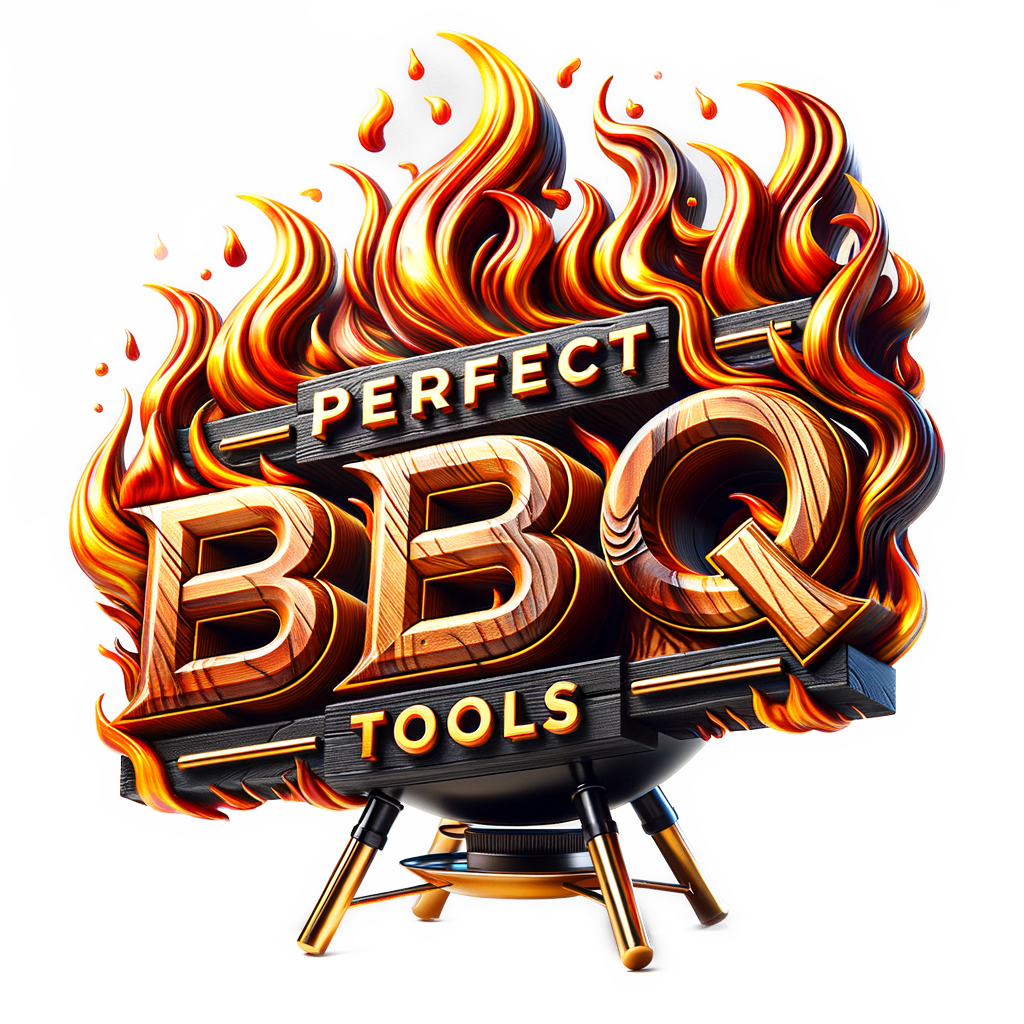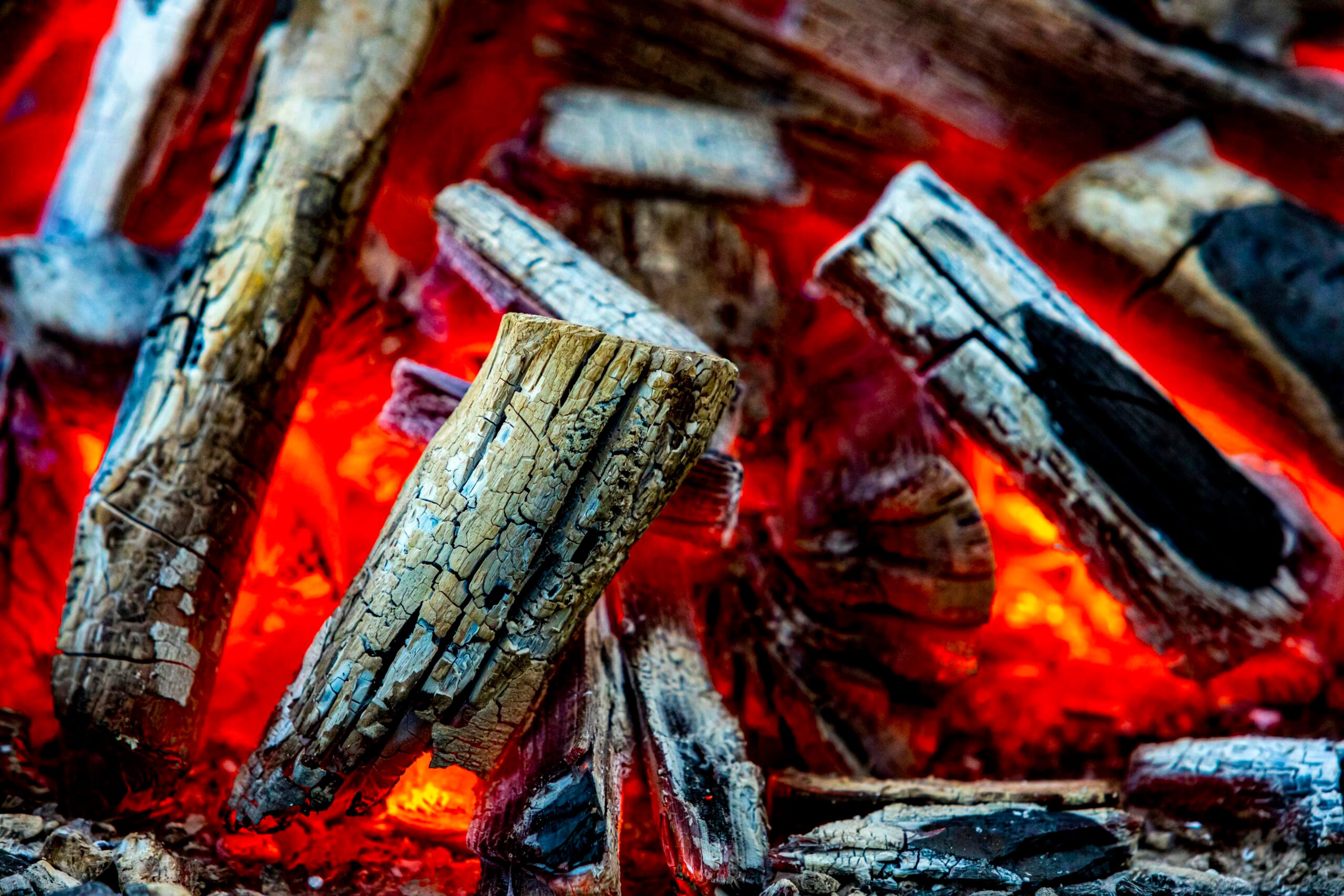Have you ever wondered why charcoal grills are so popular among grilling enthusiasts? Charcoal grills can be a fantastic tool for crafting delicious meals, and there’s much to appreciate about them. They bring a unique flavor to your food that’s hard to replicate with other grilling methods. Let’s explore what makes a charcoal grill an excellent choice for your cooking adventures.
What Is A Charcoal Grill?
When you’re considering grilling options, a charcoal grill is a classic choice that has been cherished for decades. Fundamentally, it’s a device that uses charcoal as its primary heat source. Charcoal is made from wood that’s been burned with low oxygen to remove water and impurities, leaving behind pure carbon. When ignited, it burns hotter and more consistently than wood, making it ideal for grilling.
How Does a Charcoal Grill Work?
A charcoal grill works by distributing heat from burning charcoal briquettes or lump charcoal to cook food. The coals produce a radiant heat that cooks your food evenly and often infuse it with an unmistakable smoky flavor. Adjusting the amount of airflow within the grill allows you to control the cooking temperature, providing you flexibility depending on what you’re grilling.
Types of Charcoal Grills
Understanding the different types of charcoal grills can help you find one that perfectly fits your needs. Here’s a breakdown of some common varieties:
Kettle Grills
These are the most recognizable and versatile options. With a round bowl, a tight-fitting lid, and adjustable vents, kettle grills are great for both direct and indirect cooking.Barrel Grills
Shaped like a drum, barrel grills have a larger cooking area, making them perfect for backyard parties or large family gatherings.Ceramic Grills
Known for their excellent heat retention and ability to maintain consistent temperatures, ceramic grills are often used for slow cooking and smoking.Portable Grills
Ideal for camping or picnicking, these compact grills allow you to enjoy charcoal cooking wherever you go.Built-In Grills
For those serious about outdoor cooking, built-in grills are installed in your patio or backyard, providing a long-lasting and aesthetically pleasing setup.
Benefits of Charcoal Grilling
Embracing charcoal grilling offers several enticing benefits:
- Flavor: The smoky, grilled taste that charcoal imparts to food is unmatched.
- Versatility: From searing steaks at high temperatures to slowly smoking ribs, charcoal grills can handle a wide range of culinary tasks.
- Simplicity: Many charcoal grill lovers appreciate their simple construction with fewer parts than gas grills, which means less maintenance.
- Portability: Many models are easy to transport, giving you flexibility in where you cook.
Potential Drawbacks
While charcoal grills are beloved by many, there are some considerations you might weigh beforehand:
- Setup Time: It takes longer to prepare and heat up compared to a gas grill.
- Temperature Control: Mastering airflow and temperature management takes practice.
- Cleaning: After cooking, you need to dispose of ashes and clean the grill.
How To Use A Charcoal Grill
Getting started with charcoal grilling is straightforward once you’ve learned the basics. Here’s how you can achieve grilling success with ease:
Setting Up Your Charcoal Grill
Preparation is key. Before getting started, ensure your grill grate is clean and your grill is placed on a stable, heat-resistant surface.
- Gather Supplies: You’ll need charcoal, lighter fluid or a chimney starter, tongs, a grill brush, and cooking tools.
- Arranging Charcoal: Decide whether you’ll use a direct or indirect heat method and distribute your coals accordingly.
- Lighting Charcoal: If using lighter fluid, carefully apply it to the coals and light them. Alternatively, fill a chimney starter with charcoal and light the paper underneath to ignite the coals.
Direct vs. Indirect Heat Setup
Direct heat is perfect for fast-cooking foods like burgers and hot dogs. Spread an even layer of coals across the bottom of the grill for high, consistent heat.
Indirect heat is ideal for larger cuts that need time, such as whole chickens or ribs. Arrange coals to one side of the grill or in a ring, leaving an area for food not directly above the heat source.
Mastering Temperature Control
Controlling temperature is crucial for achieving perfectly cooked food.
- Adjust Vents: Open vents all the way to increase heat and fully or partially close them to decrease heat.
- Coal Quantity: More charcoal equals more heat, while less charcoal results in lower temperatures.
- Thermometers: Use a grill thermometer to monitor temperatures. Many grills come with built-in thermometers, but an external one can provide more precision.
Cooking Techniques
With control established, try different techniques to bring variety to your grill sessions:
- Searing: Quickly caramelize the exterior of steaks for a delicious crust.
- Smoking: Use chunks of hardwood to add rich, smoky flavors to meats.
- Slow Cooking: Achieve tender, juicy meat by cooking at lower temperatures over a longer period.
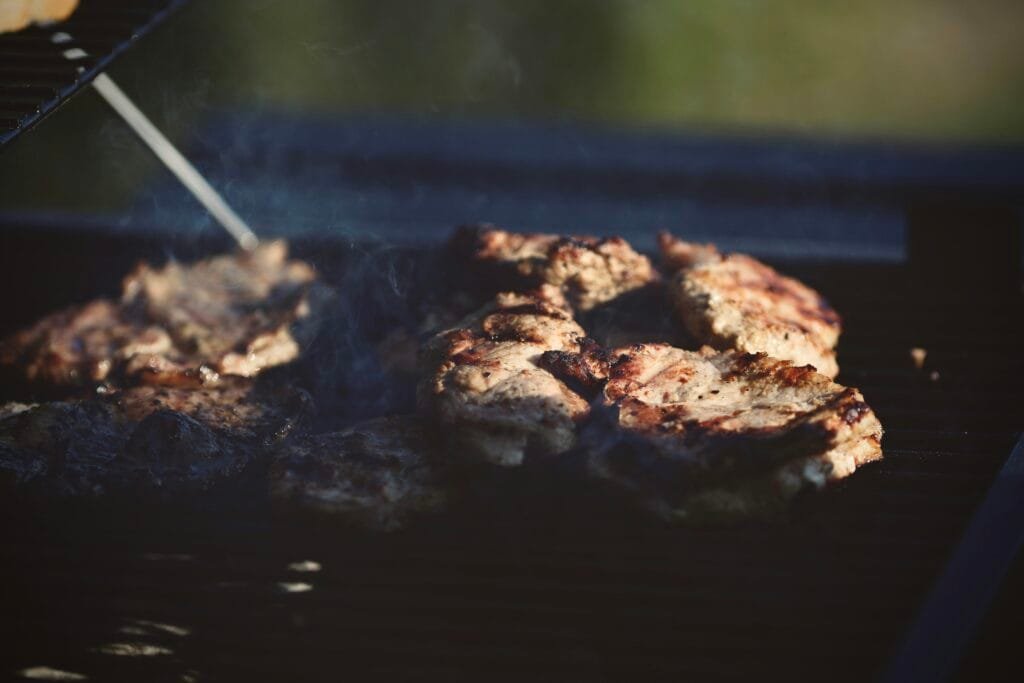
Cleaning and Maintenance
Proper care extends the life of your grill and ensures optimal performance.
Cleaning Your Grill
Post-cooking cleanup is essential:
- Remove Ash: When the grill is cool, remove any ash from the grill base.
- Scrub the Grates: Use a stiff brush to clean debris from the grill grates while they’re still warm.
- Wash Components: Clean removable parts with warm, soapy water as needed.
Maintaining Your Grill
Regular maintenance can keep your grill in peak condition:
- Check for Rust: Inspect your grill and apply a rustproofing finish if necessary.
- Inspect Vents and Hinges: Ensure these parts are functioning and clear of obstructions.
- Store Correctly: Protect your grill from the elements by using a cover or storing it indoors when not in use.
Comparing Charcoal Grills with Other Grill Types
Understanding the pros and cons relative to other grill styles can help affirm your choice or inspire a switch.
Charcoal vs. Gas Grills
| Feature | Charcoal Grill | Gas Grill |
|---|---|---|
| Flavor | Provides smoky flavor | Produces cleaner, less smoky flavor |
| Heat Up Time | Requires more time to reach optimum temperature | Heats up quickly, usually within 10-15 minutes |
| Temperature Control | Requires skill and practice for precise control | Easy to adjust, with precise control settings |
| Cleaning & Maintenance | Ash cleanup required | Requires regular cleaning of trays and burners |
Charcoal vs. Electric Grills
| Feature | Charcoal Grill | Electric Grill |
|---|---|---|
| Flavor | Offers rich, natural smoke flavors | Lacks traditional smoky flavor |
| Portability | Can be taken anywhere, no plug needed | Requires an electrical outlet for use |
| Initial Cost | Generally more affordable upfront | Can be pricier depending on model and features |
| Use Restrictions | No restrictions, except local fire bans if applicable | Restricted by indoor/outdoor use regulations |
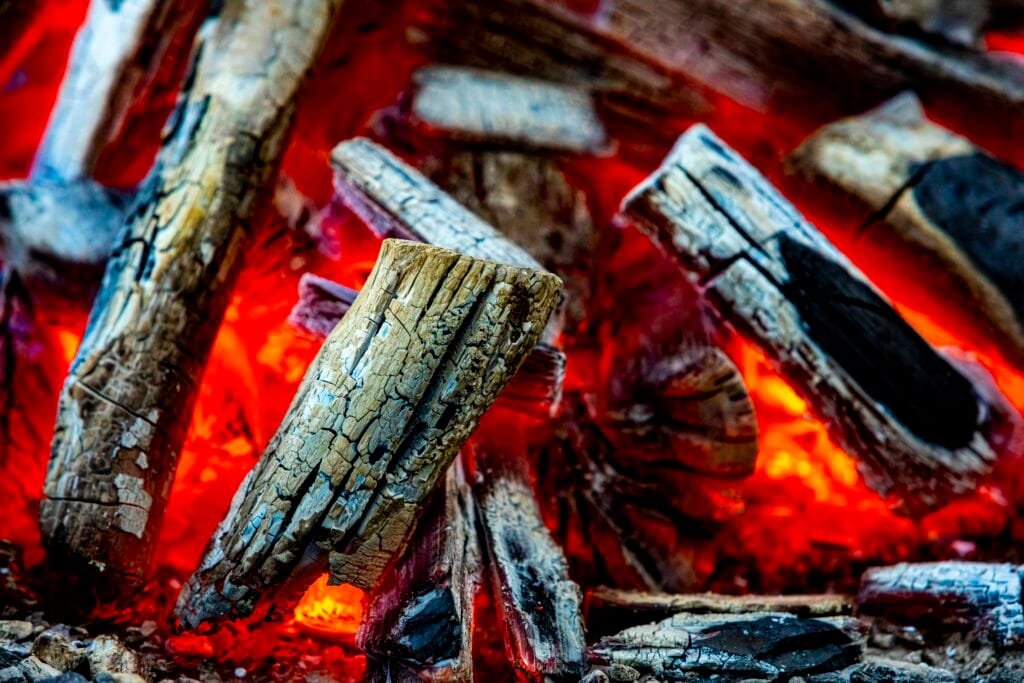
Enhancing Your Grilling Experience with Accessories
A few handy accessories can elevate your grilling outcomes. Consider adding these to your repertoire:
- Chimney Starter: Simplifies the process of igniting charcoal without chemicals.
- Griddle Plate: Enhances versatility by offering a different cooking surface.
- Heat Deflector: Useful for controlling and distributing heat during slow cooking.
- Thermometer: Ensures precise cooking by monitoring the internal temperature of your grill or food.
- Basting Brush: Perfect for applying marinades, glazes, or sauces.
Common Mistakes and How to Avoid Them
Grilling with charcoal can be an art form. Here are some common pitfalls and how you can steer clear of them:
Cooking Before Coals are Ready
Waiting until the coals turn gray with a light ash coating ensures even heat distribution.
Overcrowding the Grill
Leave space between foods to avoid uneven cooking and flare-ups. This also facilitates better airflow.
Forgetting to Preheat the Grill
Preheating ensures the grill grates are hot enough to properly sear food, locking in juices and flavor.
Ignoring Safety Measures
Keep a fire extinguisher nearby, and never leave your grill unattended. Ensure it’s in a safe place away from flammable objects.
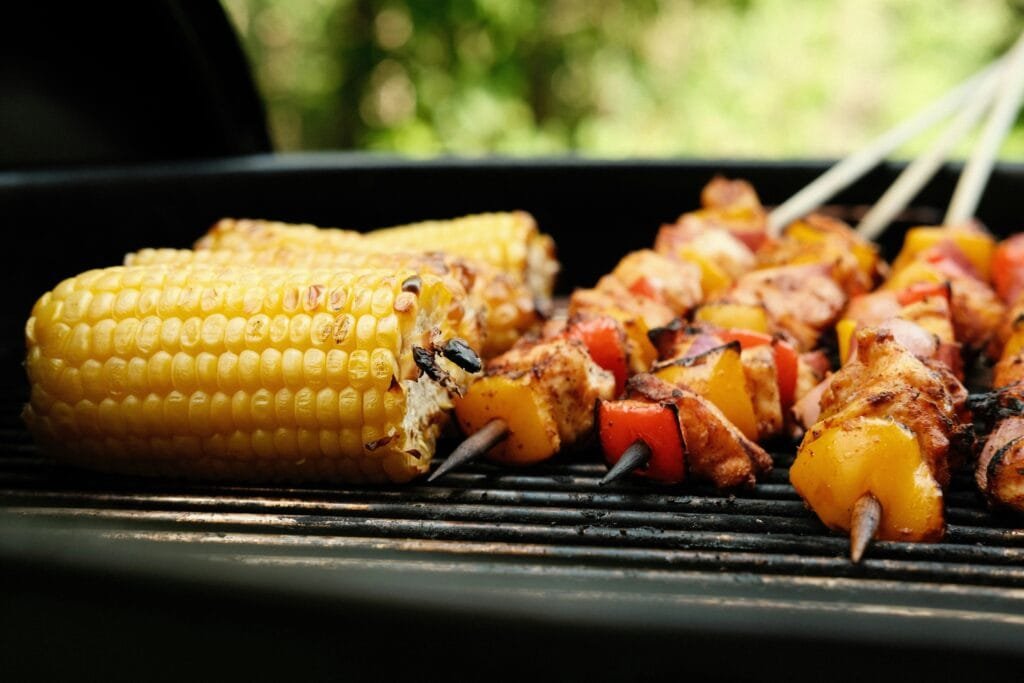
Conclusion
A charcoal grill opens the door to a world of flavors and cooking experiences that are rich and satisfying. Whether you’re a seasoned cook or a novice, mastering the art of grilling with charcoal can enhance your culinary skills and bring joy to any meal. The patience required is often rewarded by the flavorful results that only charcoal grilling can provide. Embrace the unique character and charm of charcoal grilling, and let it transform your outdoor meals for the better!
